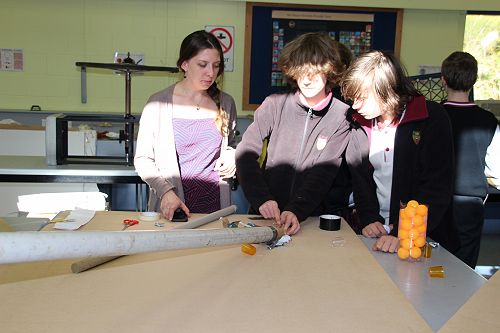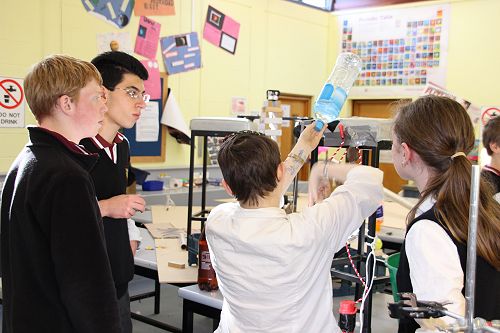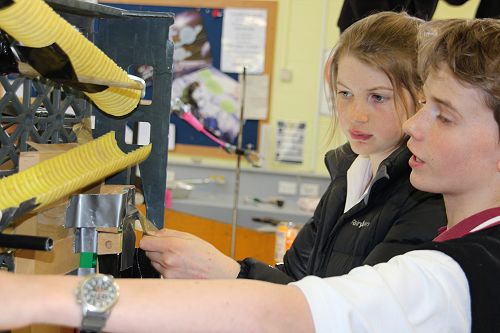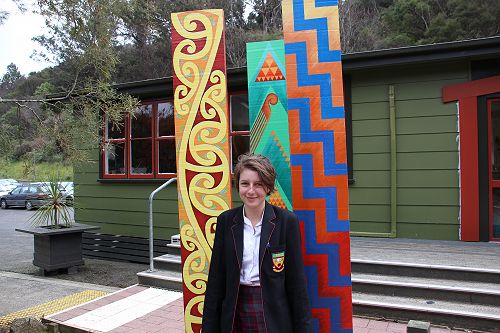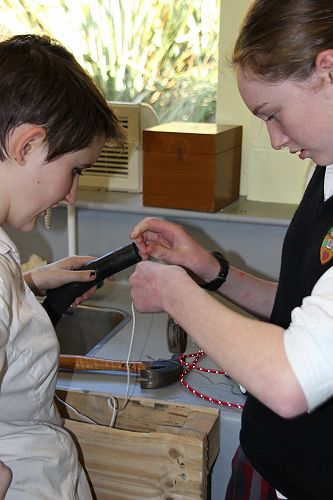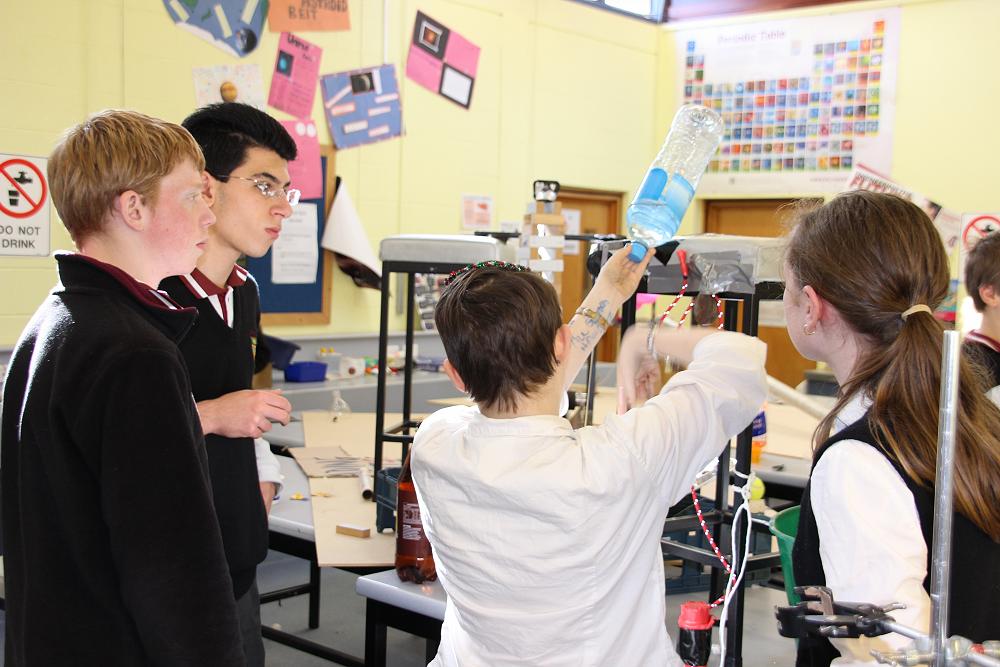
Science Department Report
It is with great sadness that this year we say goodbye to our beloved Mr McKinney (BAM).
After 27 years teaching at Logan Park, Mr McKinney has decided it is finally time to hang up his lab coat and retire. It is time to finish off the many, many projects he has on the go. We will miss his passion, compassion and creative genius in the department. We wish him well in the future and hope he will visit us regularly.
The LPHS Science department continues to develop and explore links with the community bringing educational (and plain old interesting) experiences to both our senior and junior students. The department is actively involved in the Otago Science Teachers Association (O.S.T.A.) and hosted the end of year Chemistry teachers' day at the end of the year. Dr Murray Thompson and Ms Caulfield attended the BioLive and ChemEd conference in Wellington this year and had the opportunity to meet many teachers and academics from all over New Zealand. Dr Thompson remains the Year 10 science quiz master (a Dunedin wide event) and we are pleased that our Year 13 students won the inaugural Year 13 Science quiz. We are excited to see that Meran Campbell-Hood has received a place on the Royal Society of New Zealand "Powering Potential", a programme that can help students achieve their potential and realise how they can harness science and technology to get there faster.
Aidan Braid has been accepted to go on the 2016 Young Blake expedition in February. Former student Harriet Love will begin her Masters next year looking at ice mechanics and has been awarded the Sir Peter Blake NIWA Ambassador Award.
Ahi Kaitai Mullane (Yr 11) won a place on "Rangatahi O Te Moana", a venture run by the University of Otago and NZ Marine Studies Centre. It was a 5 day residential programme for gifted and talented Maori students who have ability in Science and who may be considering future study and/or a career in health sciences. It involved a number of days at sea aboard the research vessel RV Polaris II. Ahi has also applied for the "Hands on Science" hosted by the University, and has applied for a scholarship (Maori) for the same.
Year 12 Biology students once again visited the Portobello Marine Aquarium learning important sampling skills. These skills were utilised at Warrington Beach where students explored the distribution of different species found on the Rocky shore. The Year 13 students had two visits to the Aquarium over the year. They explored animal behaviour and responses to stimuli on the first visit and looked at patterns of evolution in New Zealand on the second. They had the opportunity to dissect squid and learnt about a vestigial structure called the gladius. They also participated in practical activities that illustrated the evolutionary patterns of animal distribution in New Zealand. Year 13s also had hands on practical experience at the University of Otago’s Biochemistry Department and later visited the Animal Attic, sadly this visit was cut short as we had this field trip on the day of the June floods.
A few words from our students and staff:
I was awarded a Teacher Sabbatical for Term 3 this year. The sabbatical was 10 weeks leave from school with the twin purposes of refreshment and research. The research topic that I chose was “To investigate alternative pedagogical approaches to the teaching of Chemistry especially to Year 11 students.” The pedagogical (teaching) approaches were the use of active strategies. This involved me visiting some educational drama professionals and academics in Germany, France and the UK. The research was a mixture of workshops in Bornheim, Germany; Strasbourg, France and Warwick in the UK as well as visits to academics working at Warwick University in Coventry (also in the UK). Obviously, to get there it was necessary to travel to Europe and to take in some of the sights and experiences that exist in that part of the world. I spent some time writing up my plans and findings in a cottage on the shores of Loch Ness, attended some plays in London including The Elephant Man and Photograph 51 a play about Rosalind Franklin’s part in the discovery of DNA (she is a historically neglected figure in this field). I was also lucky enough to visit a chemistry teacher in Sweden and sit in on a number of his classes (and find that I understood a lot of the content and that teachers in Sweden face very similar problems to the ones that teachers in New Zealand face). Sweden also has a system of Naturskolan (nature schools) where students learn outdoors and experience the outdoor culture of Sweden. I was privileged to spend a morning with a class at the Naturskolan Falun, just outside the central Swedish town of Falun. Falun also has a very old copper mine as a tourist attraction and that was also an exciting visit.
I had a wonderful time on sabbatical and want to thank everyone at Logan Park who made it possible for me to be away and really look forward to trialing some results of my research next year.
Richard Pirie (RSP)
In term 3 we and eight other year 10 students had the chance to participate in a science extension. We spent our afternoons for a week with NASA engineer Anna Murphy . She gave up her time to take us through the planning and building of a Rube Goldberg, or Chain Reaction machine.
Firstly Anna told us about her work as an engineer for NASA. It was very interesting and inspiring. She then taught us about Rube Goldberg machines, showed us some clips of others for some inspiration and walked us through the planning process. We had all brought an assortment of old, unwanted things from home and so we had plenty to work with. We each planned a component of the machine, using what she had told us about input and output.
We got to work, sawing, tying knots, taping, trialing, failing, trying again, having fun, and working hard, until at the end of the week we had an almost fully functioning chain reaction. It was a very valuable experience that taught us good teamwork skills and gave us new ways of approaching problems. It also taught us that often things don't always go right the first time, and that sometimes you have to go the long way round. Oh, and we learned that duct tape is the answer to everything, and that no matter what your maths teacher says, trial and error is sometimes the only way to work something out.
We all had so much fun working with Anna, learning new skills and getting a great end result.
We're so grateful that we were given this opportunity and we would like to thank Anna and the teachers who organised the extension all over again.
By Aidan Clements and Mary Locker
Gallery
